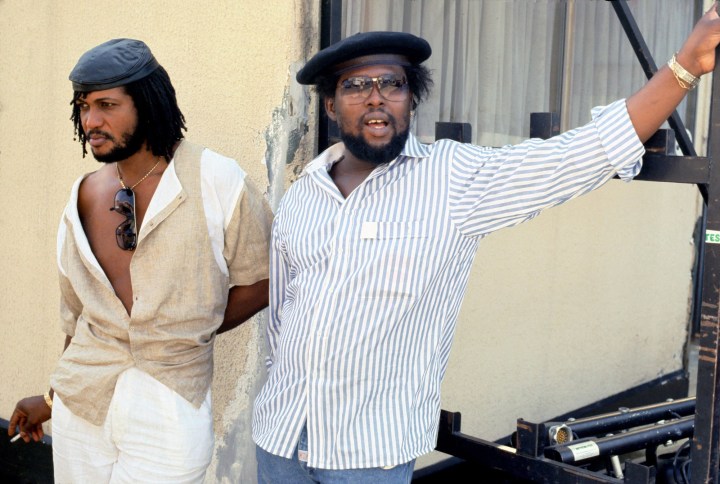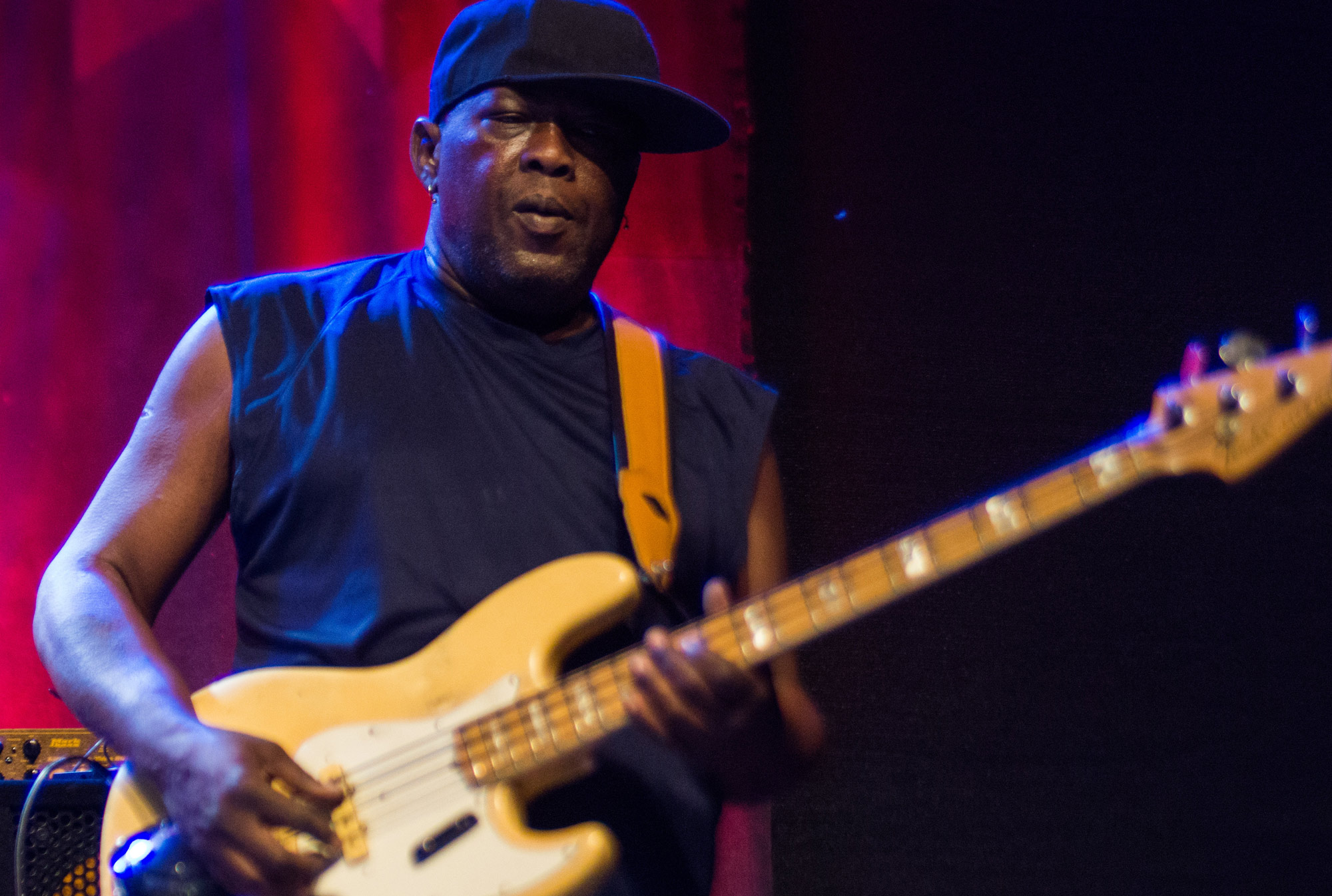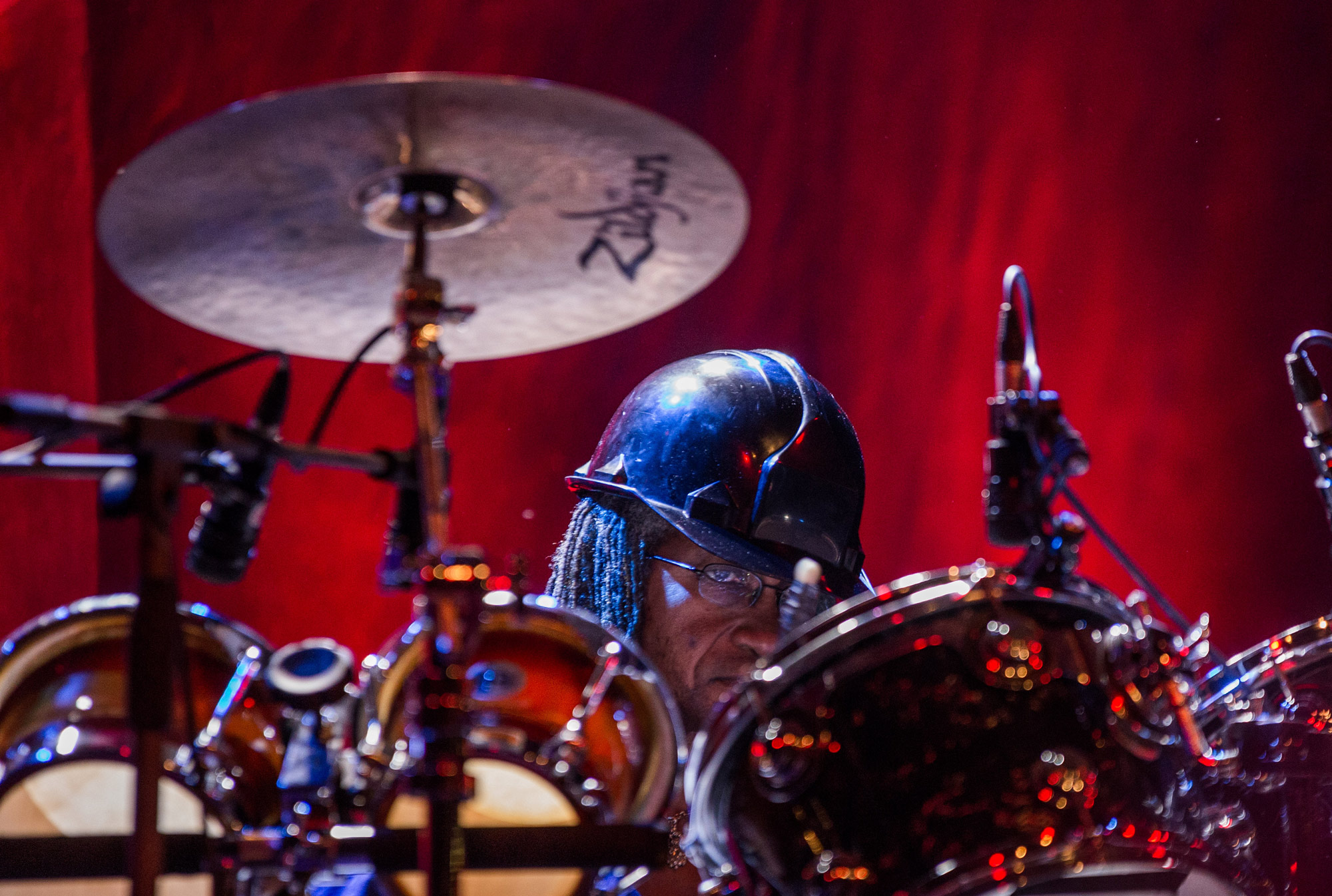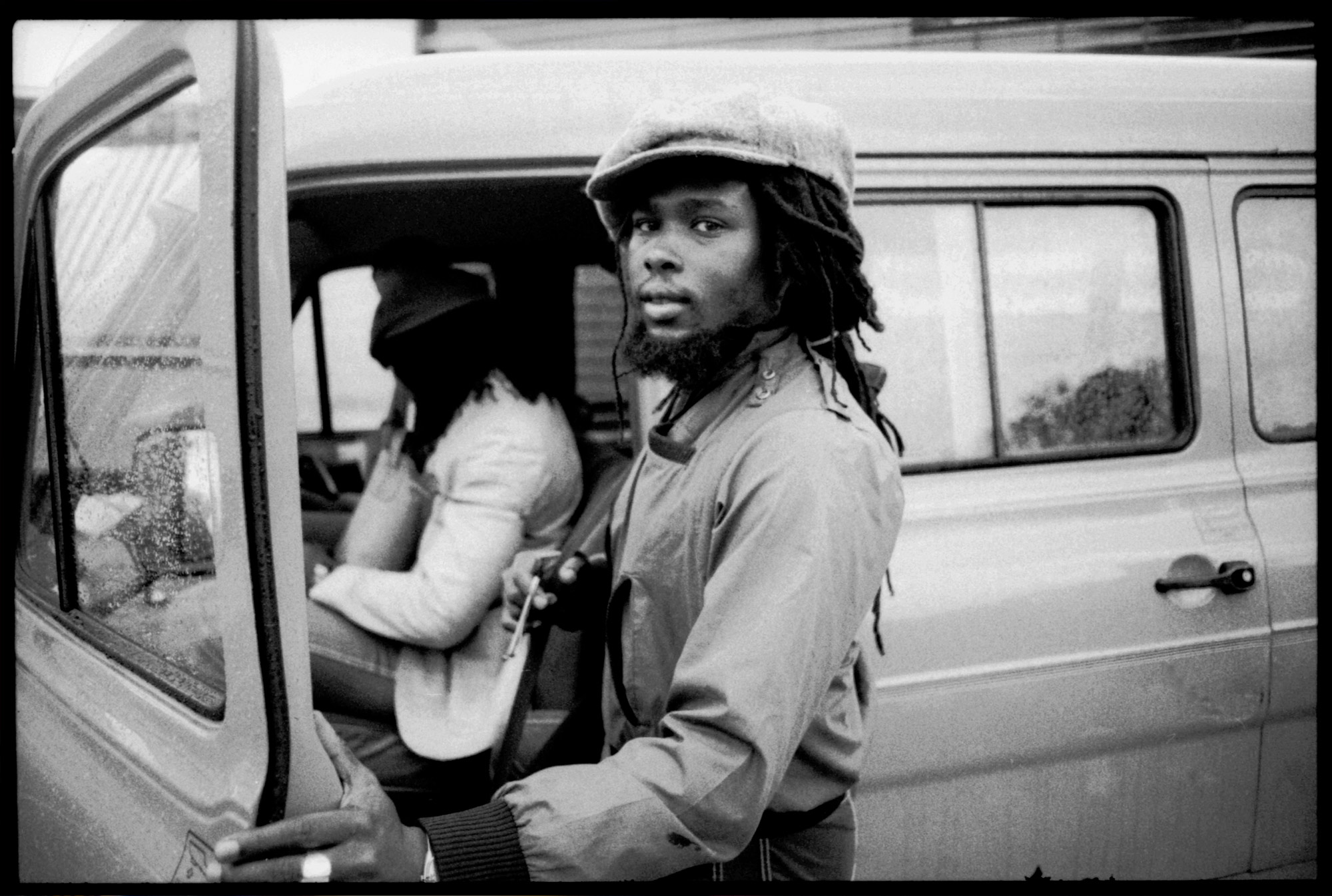NEW FRAME
Sly & Robbie honour their roots with ‘Red Hills Road’

The duo have graced albums by Bob Dylan, Madonna, Bill Lasswell, Grace Jones and the Rolling Stones but despite their global success, never forgot their roots.
This article was first published in New Frame.
In the 1970s, Red Hills Road in the city of Kingston and St Andrew, Jamaica, was home to a host of popular nightclubs. With names like Neptune, Stables, Evil People and Tit For Tat, these clubs were at the heart of the city’s live music scene and each of them had a house band in residence. With the venues so close to each other, it was easy for musicians to cross the road and catch another band’s set.
One night, Skin, Flesh and Bones – led by Ansel Collins and featuring drummer Sly Dunbar – was playing at Tit for Tat while The Aggrovators, featuring bassist Robbie Shakespeare, were playing at Evil People. In a 2019 interview with Reggae Vibes, singer Audley Rollen recalled how Shakespeare had always liked how Dunbar played. “So every time we took a break at Evil People, Robbie says, ‘Come, man, let’s go over Tit For Tat and go listen to Sly,’” he told the publication.
Soon enough a new musical partnership formed, one so successful that Dunbar recently told the Jamaican Gleaner newspaper that people point at him in the streets and say, “See Sly & Robbie there … We are such a force that it’s as if Sly & Robbie is one person.”
The duo, known affectionately by fans as the Rhythm Kings, have graced albums by Bob Dylan, Madonna, Bill Lasswell, Grace Jones, the Rolling Stones and others. Yet despite their global success, they haven’t forgotten their roots on Red Hills Road. When they built One Pop Studio, it was the obvious location. But until this year, the duo had never referenced the street in their music. Their new album, Red Hills Road, released on 1 January, rectifies that.

2 July 2015: Robbie Shakespeare during a performance with Sly Dunbar and Norwegian trumpet player Nils Petter Molvær at German music festival TFF Rudolstadt. (Photograph by Carstor/ Wikicommons)
Looking back
That it has taken Sly & Robbie close to 50 years to reference this significant location in their music is telling. It suggests, perhaps, that in looking back over their career as arguably the world’s finest rhythm section, the duo were intent on rooting their art in the community from which it spawned. The fact that longtime musical friends from the Taxi Gang days, including keyboardists Collins and Steven “Lenky” Marsden, saxophonist Dean Fraser and the late trombonist Ronald “Nambo” Robinson, appear on the album reinforces this reading. The presence of these old studio pros on Red Hills Road also ensures that the album delivers.
Dunbar told the Gleaner that the duo had no plans to release a new album. However, since the release of their last album as a duo, the critically acclaimed Dubrising, they had been working on a number of unreleased individual songs. The duo have featured on a number of collaborations, such as 2017’s Militant alongside Junior Natural and 2018’s Nordub with Nils Petter Molvaer, Eivind Aarset and Vladislav Delay, but new music from them alone has been scarce.
While Dubrising reworked rhythms originally composed between 2006 and 2012, the dub work from engineer and producer Paul “Groucho” Smykle and keys from Big Audio Dynamite’s Dan Donovan explored new possibilities for the songs that were heavy on atmosphere.
Red Hills Road is a very different record in that it’s not as cohesive as Dubrising. Rather than keeping its focus on deep dub, it sees Sly & Robbie offering what almost feels like a compilation of sounds from across their career, that still cohere together as a listening experience. From dancehall to dub, roots reggae to mento, it seems almost the entire spectrum of Jamaican music is on offer, as well as visions for future sounds.
From mento to dancehall
Red Hills Road is a mostly instrumental album. The only real vocal track is a cover of jazz and R&B singer Arthur Prysock’s 1976 hit When Love Is New. Although, Cherine Anderson does scat on the delightful Sweet Dub, a song that offers a new hybrid sound as an old-school dub banger giving a nod to electronic dance music with its synth melody. Dunbar told the Gleaner the song is a “special experimentation” and his favourite from the new album.
But it’s the moments in which Sly & Robbie take listeners to the dance floor that Red Hills Road really brings it home. Album opener Yaw Yaw Yippee comes crashing out of the gates, while Haul and Pull Up sets a propulsive synth bass to a thunderous dancehall beat to create one of the album’s standout tracks.
Another dance-floor minded track is the now infamous Santa Barbara, a rhythm Dunbar wrote in the early 1990s after watching a local Kumina religious event on television. Chaka Demus and Pliers were the first to get their hands on the fresh rhythm, using it to drive their 1992 hit song Murder She Wrote. The single was the first offering from the act’s Sly & Robbie-produced album, Tease Me, which went to the top of the charts and had six Top 40 hits in the United Kingdom. That rhythm would drive many more songs up the charts, including Dem A Bleach by Nardo Ranks. On Red Hills Road, the duo reclaim the now legendary Jamaican dancehall rhythm, giving it a fresh breath of air.

2 July 2015: Sly Dunbar on stage at the TFF Rudolstadt music festival in Germany. (Photograph by Carstor/ Wikicommons)
Red Hills Road doesn’t only explore the rich legacy of Sly & Robbie’s careers in the genres of dub and dancehall. Linstead Market draws its inspiration from the addictive percussion of Kumina, adorning it with violin, banjo and a magnificent saxophone melody. Belly Dancer uses Arabic strings and a dramatic piano melody to flesh out one of the album’s most infectious rhythms. And Coronation Market is a dub that references the influence that mento Jamaican folk music has had on ska and reggae and subsequent offshoots.

18 June 1982: Robbie Shakespeare and Sly Dunbar at the Glastonbury Festival in the United Kingdom. (Photograph by David Corio/ Redferns)
That Red Hills Road is a coherent album with all these diverse influences and sounds is a feat. While it may not have the immediate appeal of Sly & Robbie’s best work, listening to it over time reveals a rewarding collection of songs that speaks to the duo’s rich past and drops hints about their future. DM/ ML

















 Become an Insider
Become an Insider
Comments - Please login in order to comment.